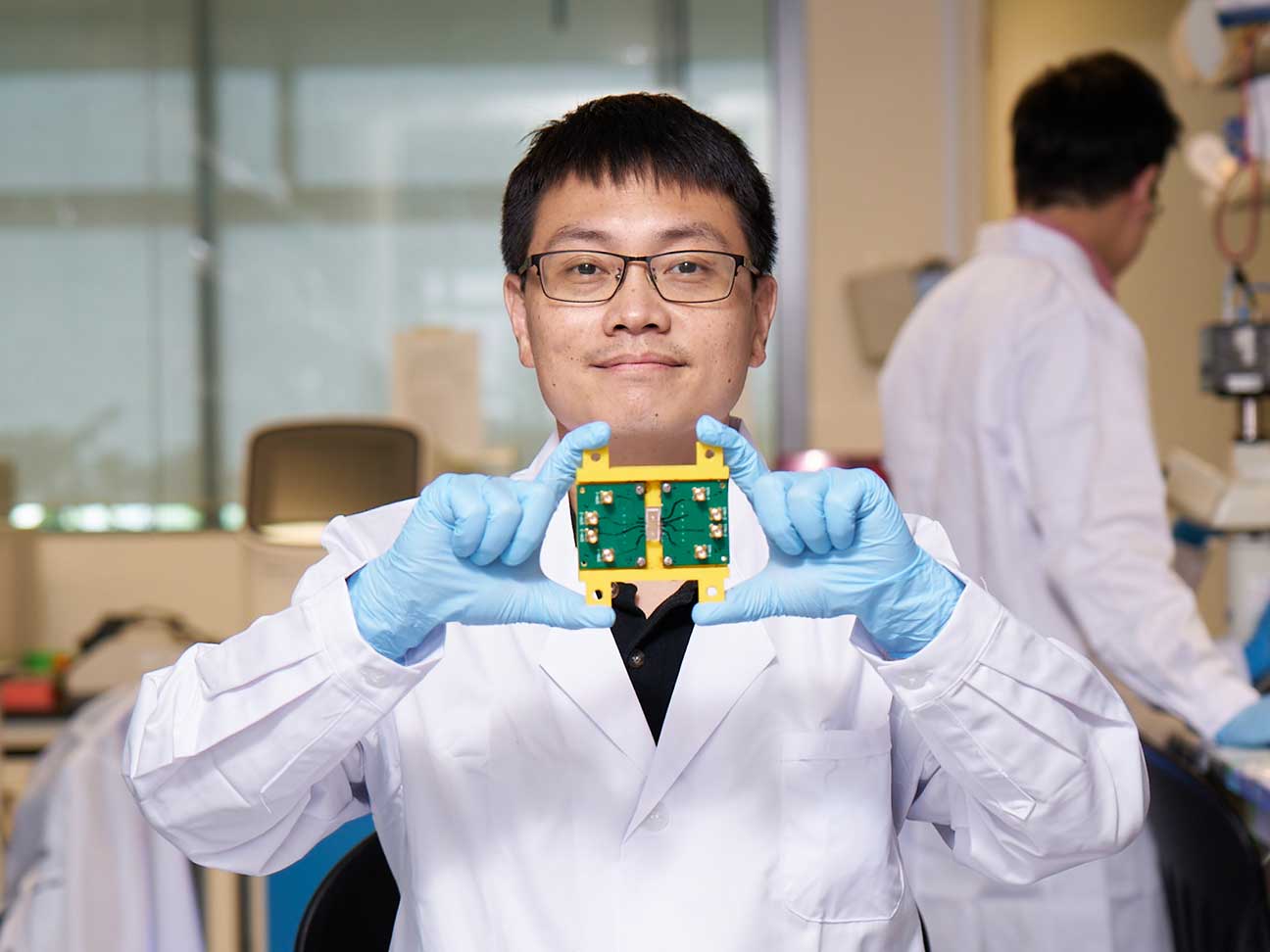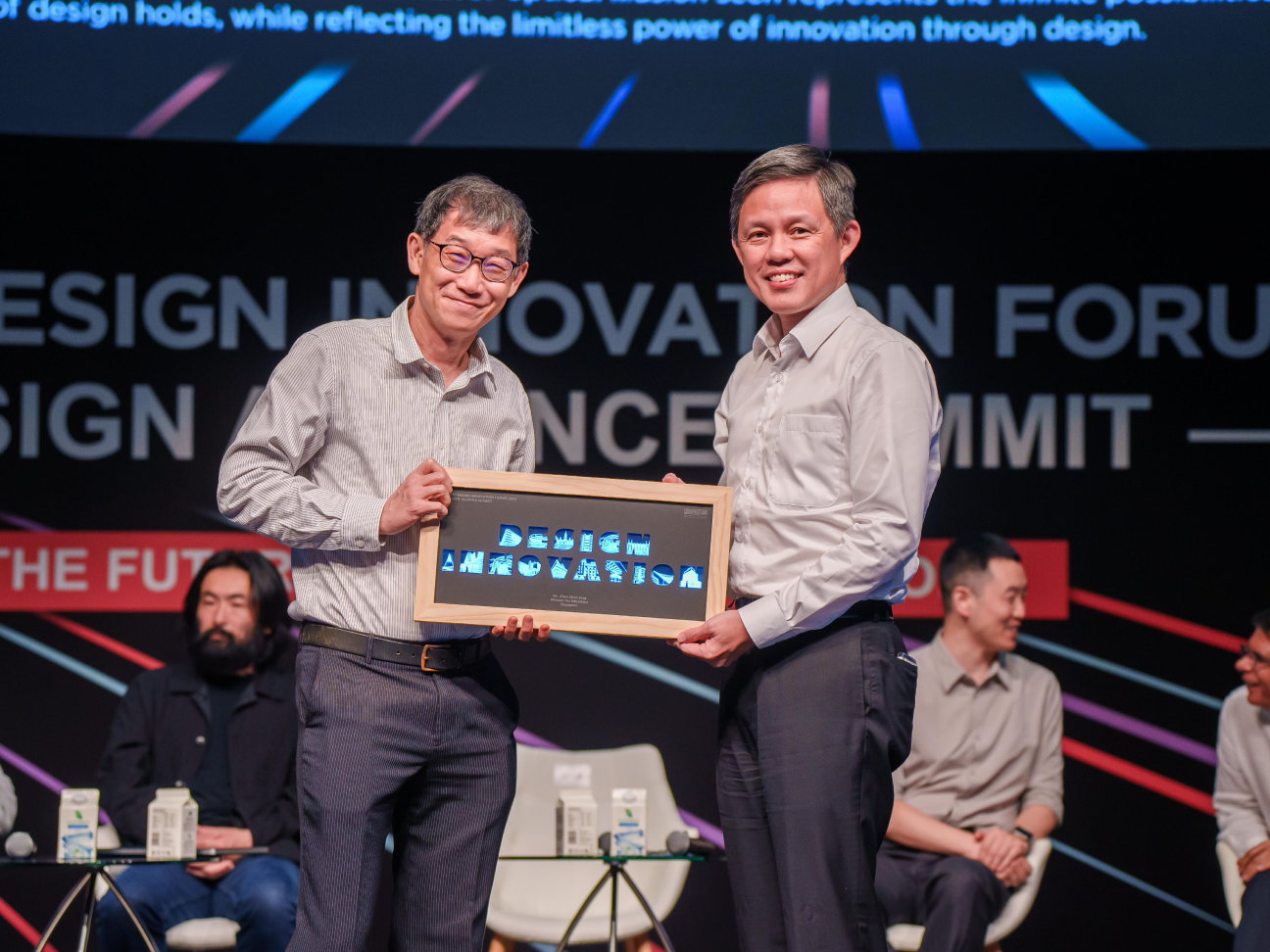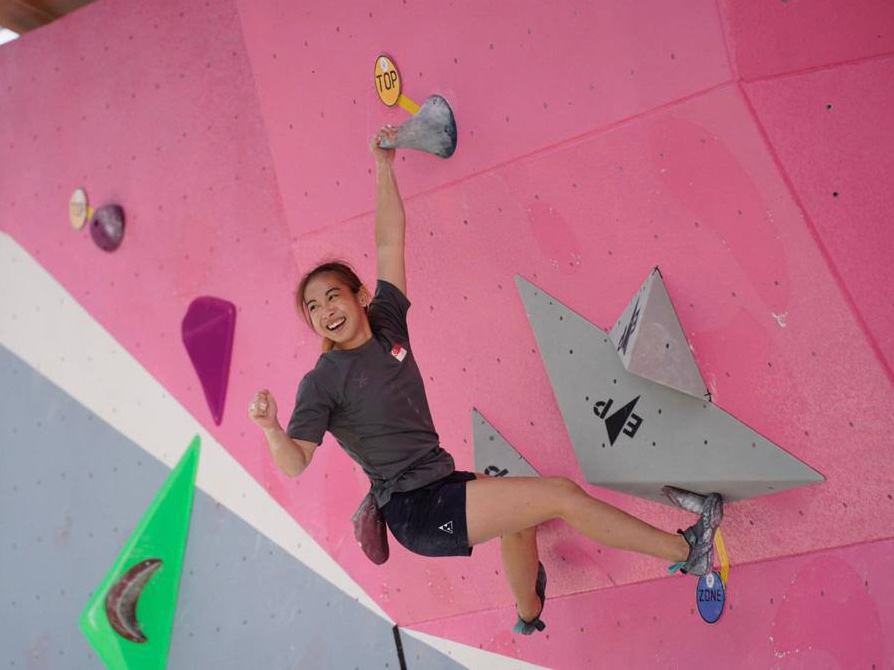Events
Behaviour analysis in complex environments
ISTD PhD Oral Defence Seminar by Ng Xun Long – The thesis presents Chaotic World, a large-scale multi-modal dataset with fine-grained annotations of human actions, interactions, and sounds in chaotic situations.
AI metrics beyond performance: safety and trustworthiness of AI systems
ISTD PhD Oral Defence Seminar by Bhardwaj Rishabh – This thesis investigates critical non-idealities in AI systems, focusing on safety behaviour post-training and alignment.

Towards data efficient and continual semantic segmentation
ISTD PhD Oral Defence Seminar by Zhu Lanyun – Semantic segmentation is a fundamental and important task in computer vision, which aims to classify each pixel in an image. The rapid development of deep learning has significantly advanced semantic segmentation and improved the accuracy, promoting its application in fields with high accuracy requirements for pixel-level prediction, such as autonomous driving and medical diagnosis. Current works for semantic segmentation are typically based on a standard setup that all data is accessible beforehand and can be learned simultaneously.


Urban intelligence: machine learning for human and environmental insights
ISTD PhD Oral Defence Seminar by Dai Siyang – Urbanisation has given rise to increasingly complex systems that sustain and manage the lives of urban residents. As populations grow, the challenges of managing traffic, overcrowding, and environmental challenges escalate. These complexities place stress on urban ecosystems, demanding innovative solutions to ensure smooth and sustainable operations.

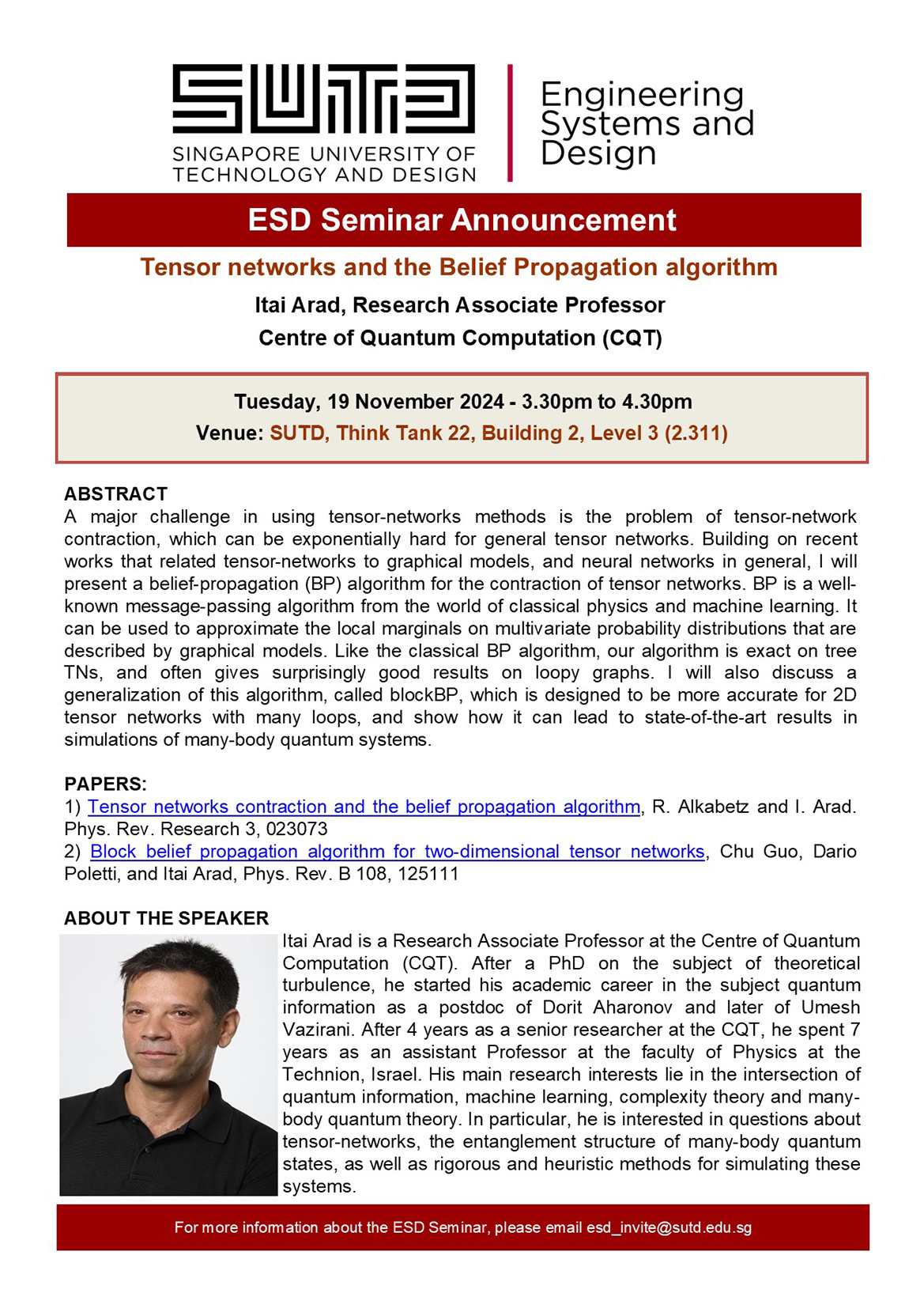
Itai Arad (Centre of Quantum Computation) – Tensor networks and the Belief Propagation algorithm


Utilising large language models for tour itinerary recommendation
ISTD PhD Oral Defence Seminar by Ho Ngai Lam – Planning a tour Itinerary poses a significant challenge for tourists, especially when navigating unfamiliar territories. The computational complexity of tour recommendation further compounds this challenge due to its inherent intricacies.

Immanuel M. Bomze (University of Vienna) – Need to relax – but perhaps later? Reflections on modeling sparsity and mixed-binary nonconvex optimization problems
Fair generative modelling
ISTD PhD Oral Defence Seminar by Teo Tzu Hsuan Christopher – In this dissertation, we make important contributions in improving fairness in generative models by identifying and addressing constraints which may limit their broader adoption.
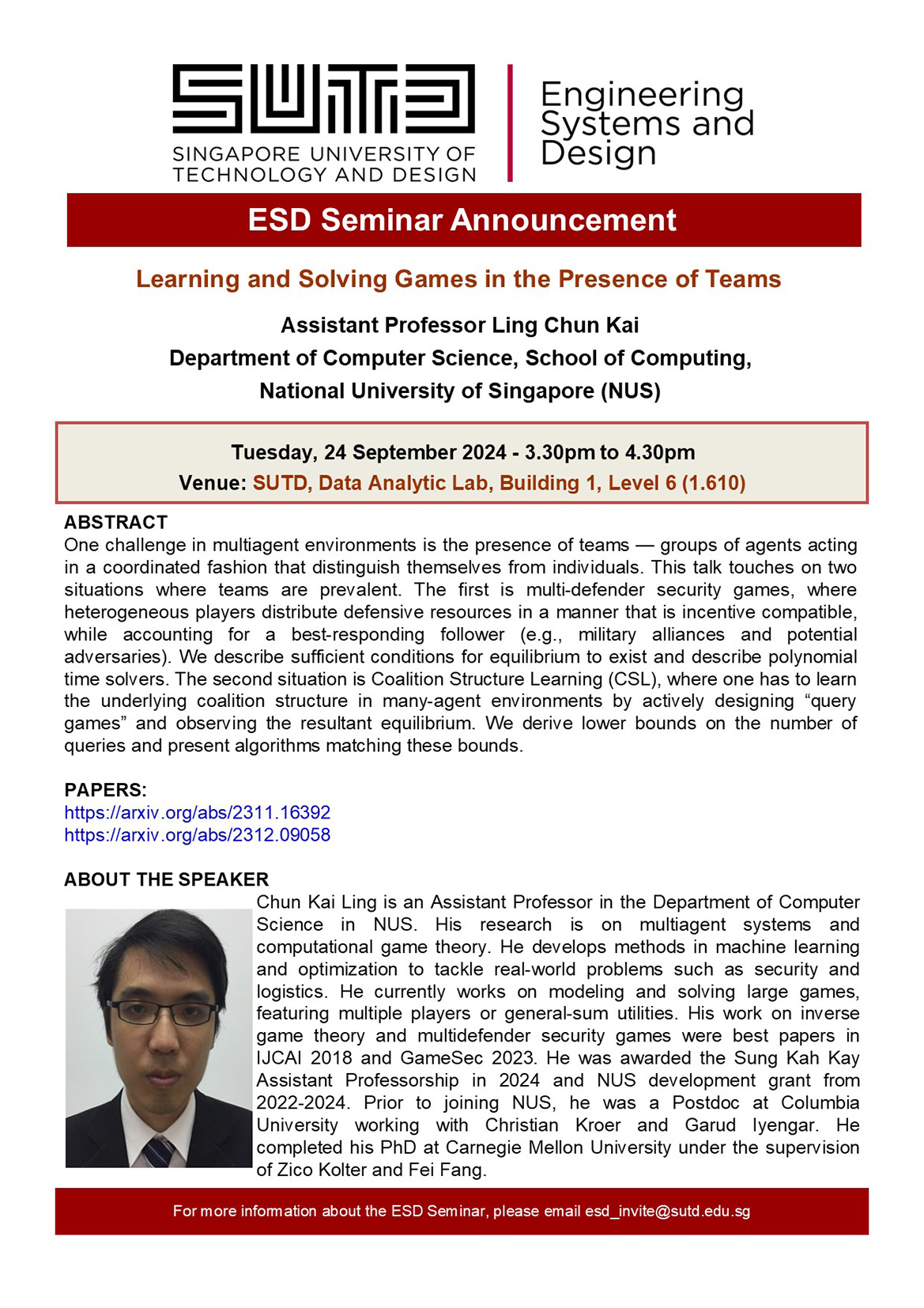
Ling Chun Kai (National University of Singapore) – Learning and Solving Games in the Presence of Teams


Master of Architecture information session for intake 2025
The SUTD’s Master of Architecture (MArch) programme offers a future-forward professional degree programme, highlighting design and research for sustainability and the digital transformation of the architectural profession. The programme launches the careers of leaders in architecture by emphasizing independent critical thinking in a thesis project, supported by close collaborations with faculty on cutting-edge research.



